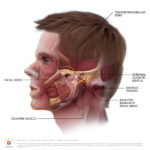
Suzy Ker and Garry Tew consider a qualitative study exploring patient, carer and staff perspectives on implementing High Intensity Interval Training for service users in inpatient mental health settings.
[read the full story...]
Suzy Ker and Garry Tew consider a qualitative study exploring patient, carer and staff perspectives on implementing High Intensity Interval Training for service users in inpatient mental health settings.
[read the full story...]
Francesca Bentivegna summarises a trial which looks at how aerobic exercise can help students with major depression by examining reward and cognitive control as predictors and treatment targets.
[read the full story...]
Shuichi Suetani and Gaj Panagoda explore the World Federation of ADHD International Consensus Statement published in 2021, which contains “208 evidence-based conclusions about attention-deficit hyperactivity disorder.
[read the full story...]
This review of cranio-mandibular manual therapy (CMMT) on pain and maximum mouth opening in people with temporomandibular disorders included 6 RCTs. While the available evidence supports the use of CMMT it is of very low quality so should be interpreted cautiously.
[read the full story...]
In her debut blog, Snigdha Dutta explores the 4M model for promoting university student mental health, explored by a recent systematic review which suggests that a combination of mindfulness, movement, meaning, and moderator-based interventions may help.
[read the full story...]
Georgie Parker summarises a research study of Reddit comments posted during Covid-19, which looks at how the pandemic and lockdown affected people with disordered eating behaviours.
[read the full story...]
Alice Potter summarises a narrative review and multi-level theoretical framework of mechanisms of action on how leisure activities affect health.
[read the full story...]
Ross Nedoma summarises a recent systematic review and meta-analysis exploring the effectiveness of exercise-based interventions in reducing depressive symptoms in people without clinical depression.
[read the full story...]
Andrew Sommerlad appraises a recent review on the efficacy of interventions for depression in people with dementia, which identified several non-drug treatments that can have a meaningful effect on depressive symptoms in dementia.
[read the full story...]
A group of MSc Clinical Mental Health Sciences students at UCL Psychiatry summarise a systematic review on the experience of initiating community-based group physical activity by people with serious mental illness.
[read the full story...]